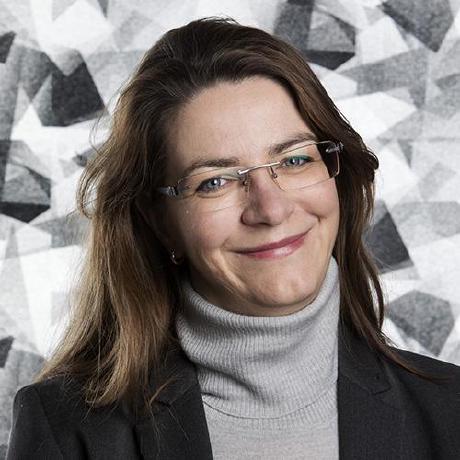Rebecka Jörnsten
My research centers on the development of new statistical methodology for neural networks, network modeling, clustering and model selection, with applications to high-dimensional biological data.
My group consists of students and postdocs, and master students that work on in-house project or industry projects. In-house projects range from multi-group and multi-view data integration, multilayer network modeling, interpretable deep neural networks and analysis challenges in systems biology. For more details, please check the List of Current Projects below - we are always looking for master students who want to get involved in research projects.
What’s new?
- Our paper Reconstructing the regulatory programs underlying the phenotypic plasticity of neural cancers has now appeared in Nature Communications. Congratulations to Ida Larsson and Felix Helt and the Nelander group!
- Congratulations to postdoc Ziming Wang! A link to SE(3)-bi-equivariant Transformers for Point Cloud Assembly which was accepted to NeurIPS 2024.
- Very happy to be a recipient of a new VR project grant “Investigating deep learning through the lens of adaptive kernels”! Looking to hire a new PhD student come fall 2025 - Link to the application system Only applications submitted through the formal electronic system will be reviewed.
- Excited to be part of the new multi-disciplinary research center CNSx3: Transformative Models for Brain Diseases! Looking to hire a PhD student starting fall 2025. Link to the application system. Only applications submitted through the formal electronic system will be reviewed. The CNSx3 website is now up and running.
Research profile
Data integration and joint modeling are a rich source for research problems. These types of problems are central components in several joint projects in collaboration with Sven Nelander’s group. Our group aims to formulate integrated models for mRNA, microRNA, DNA copy number, methylation and mutation in human cancer. These projects are supported by two grants from the Swedish Foundation for Strategic Research as well as the Wallenberg AI, Autonomous Systems and Software Program (WASP) and the SciLifeLab and Wallenberg National Program for Data-Driven Life Science (DDLS). We also collaborate with Mika Gustafsson’s group at Linköping University on data integration tasks, with a special emphasis on the utilization of prior biological information. This project is also funded through WASP and DDLS.
In a joint research project with Professor Giuseppe Durisi, Chalmers Electrical Engineering, we investigate the generalization properties of deep neural networks - how come such over-parameterized models perform so well on test data? The project “Generalization bounds for Deep Neural Networks: Insight and Design” is funded through the Wallenberg AI, Autonomous Systems and Software Program (WASP).
Together with Balazs Kulcsar at Electrical Engineering, we work on research problems merging control theory and neural networks. This work is funded by Centiro Solutions.
Academic Service
Since 2018, I am the Vice-Dean for Research and Research Infrastructures at the Faculty of Science and Technology, University of Gothenburg. I chair the Faculty Board’s advisory committee advisory committee, where we discuss interdepartmental activities, review sabbatical applications and Faculty prizes and awards. We also organize faculty events.
Current projects
We are always looking for master students who want to be a part of our research team. Please contact me if any of the projects sound interesting to you. You are also welcome to contact me with your own project idea. I usually supervise 5-7 master students each year.
- Neural Networks and Control Theory. Together with my student Vincent Szolnoky and Professor Balazs Kulcsar at Electrical Engineering, I work on problems ranging from methodological and theoretical challenges in neural networks to practical applications in logistics and transportation.
- We are currently investigating *Spatial cluster regularized regression models in the context of spatial transcriptomics data. The idea is to find the key regulators that are associated with cell-states in different regions of the brain. This is joint work with Sven Nelander’s group at Uppsala University
- AI-Integromics. We have several theses projects centering on the development of data integration methods for systems biology using deep neural networks paired with structured regularization. This is joint work with Mika Gustafsson’s group at Linköping University and Sven Nelander’s group at Uppsala University.
- In our recent paper, Reconstructing the regulatory programs underlying the phenotypic plasticity of neural cancers, we use an iterative clustering and model selection procedure to identify regulatory programs in glioblastoma. A current master thesis project focuses on generalizing this to other data distributions.
- Digital twins for optimal drug combination identification. We are exploring how to use GBM growth models to generate synthetic data for accelerated drug-combination discovery. This project is related to the newly formed CNSx3 center. This 60MSEK center CNSx3: Transformative Models for Brain Diseases will build brain organoid models to develop personalized treatment regimens.
